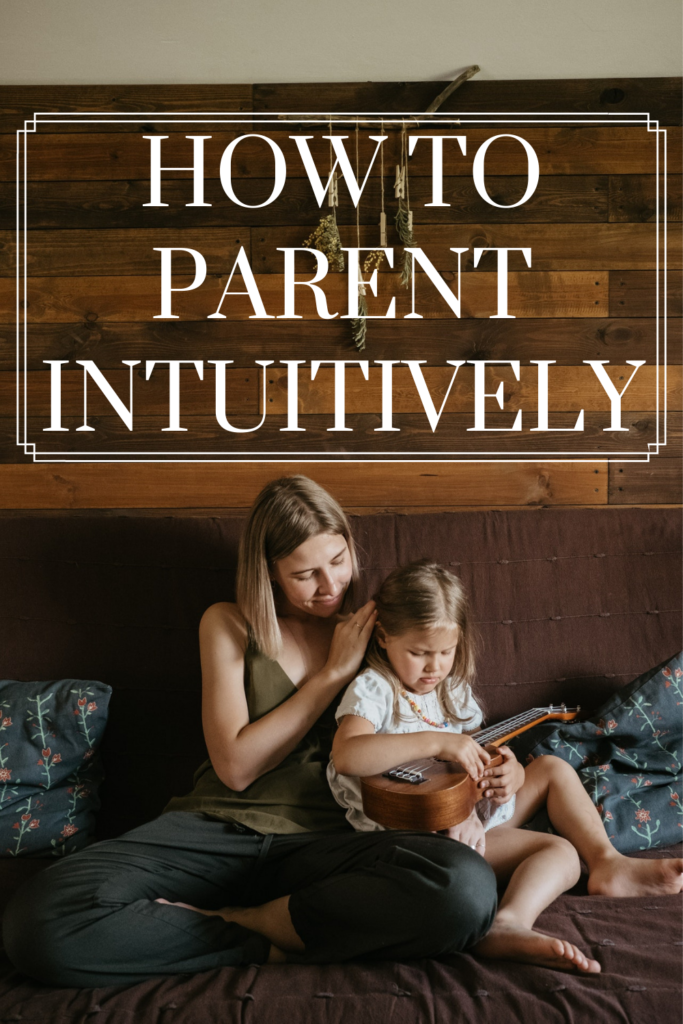
There are many different parenting philosophies today, and a wide variety of beliefs to go along with them. So why another? What is Intuitive Parenting?
I think gentle parenting is definitely starting to become more mainstream, which I think is a huge step forward for the parent/child relationship. I don’t subscribe to “gentle parenting” perse, but I do feel it is better than traditional mainstream parenting that involves a lot of manipulation, coercion, yelling, and hitting children.
The last thing I want is to create another parenting Construct – “intuitive parenting”. The thing that makes intuitive parenting different though, is that it is NOT a one size fits all approach. I wouldn’t even call it a “construct”; I would call it a mindset.
I think parenting intuitively can look different depending on where you live, your viewpoint, and also depending on the child. Different children have different needs, and so things may slightly vary from child to child.
In this article, I want to talk about what I believe Intuitive parenting is all about. I’m a big proponent for mothers learning to listen to their intuition again.
I think it’s fine to draw from different parenting methods, but I do think there are a few core tenants when it comes to parenting Intuitively, so let’s break them down.
RELATED: What is Primal Birth?
What is Intuitive Parenting
Emphasizing and prioritizing my relationship and connection with my child
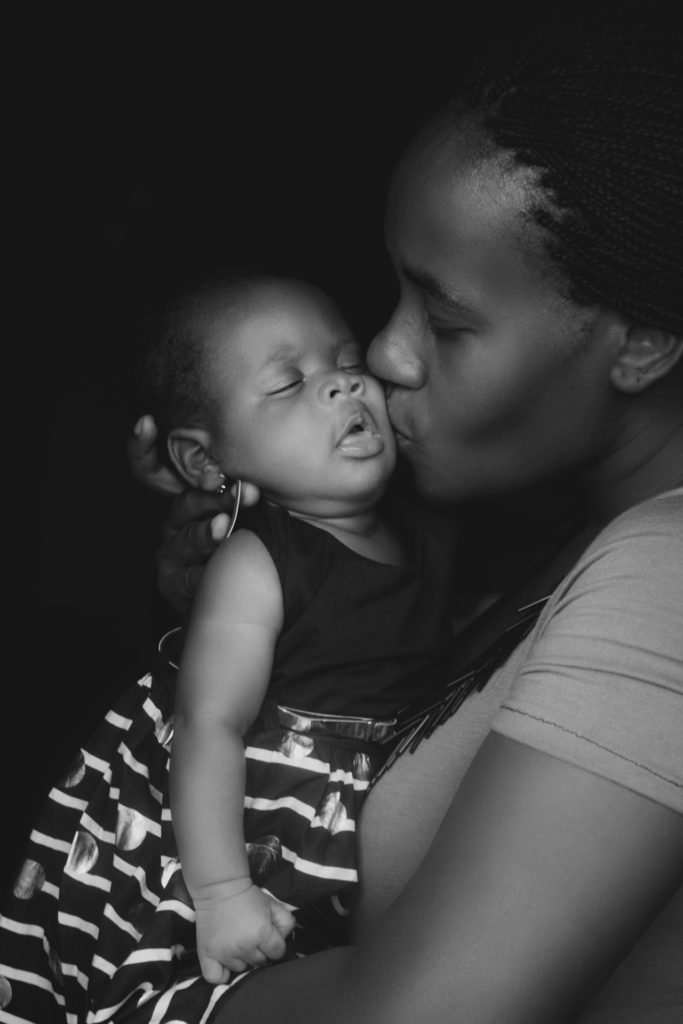
When it boils down to it, we cannot force our kids to listen to us or do what we say. The only chance we have at influencing them is either due to their connection with us, or their fear of us.
When we look at how our parents and grandparents were parented and the trauma those generations have gone through, I think it’s safe to say that manipulating children using fear is not the ideal way to get your kids to listen.
Fear breeds distrust, sneakiness, and blind obedience for fear of the consequences.
Parenting this way is a great way to raise children who can mindlessly work in a factory, never try new things for fear of breaking the status quo, or sneak around the law in order to get what they want….because as long as you don’t get caught, it’s okay right?
If we don’t want to use fear in our parenting, the alternative is that we use our connection to influence our children. I believe this is the ideal way to parent and the method that will produce children who are self confident, trust you and others, and willing to take risks and try new things.
Babies are born seeking connection with their caregivers. They read our faces, look into our eyes, want to be cuddled, held, and love to explore the world from the safety and security of our arms. Most parents are happy to bond and build connection with their baby (at least to a degree….some outdated sleep methods like Cry-It-Out and accusing babies of “faking their cries to manipulate us”, definitely break connection. I’m going to assume that most parents reading this do not use those methods.)
But isn’t it interesting how we are happy to build a bond and foster connection with our baby – until the baby turns a year old (give or take) and starts doing things that we deem “inappropriate” or “willful” or “naughty”?
Why do so many people stop focusing on building that bond once their child becomes a toddler?
Part of parenting intuitively is prioritizing your connection with your child.
One of the most common times I see parents losing connection with their child is when the child does something that the parent deems “naughty”.
It’s so easy to yell at them, to slap their hand, to shame them (‘how could you?!”), or send them away to timeout. All of these things break connection. And when your child is acting out, connection is what they desperately need.
I know that it takes a mindset shift, but instead of viewing your child as the one being naughty or behaving badly, change your perspective and remember that you and your child are a team and that you will help them conquer this big emotion, this temptation, or help them follow this boundary.
It’s not YOU against YOUR CHILD. You are here to help them.
I could say so much more about this topic, but I think for this article I will leave it at that. Intuitive Parenting means always prioritizing connection – even in the tantrums or hard times. Always protect that bond.
RELATED: Gentle Parents are Making this one Mistake
Treating my child with the same level of respect I would treat anyone else

Children – yes even babies and toddlers – are whole people.
They have their own likes and dislikes.
They have their own personality.
They have their own preferences.
Why do we so often feel that it’s okay to treat them differently than we treat the adults in our lives?
An important part of Intuitive Parenting is treating children with respect. Oftentimes treating children with respect may not always feel instinctive or intuitive because of how we were treated as children. But once you change your perspective, it becomes very unnatural to treat children with anything BUT respect.
So many of the things we do daily to our little ones are not respectful at all and we would never dream of doing them to another adult.
Would we force another adult to hug someone that they didn’t want to hug?
Would we tickle another adult until they can’t breathe and they’re shouting “stop, stop, stop!” (even if they’re laughing while doing it).
Would we baby talk to another adult and refer to ourselves in third person all the time?
Would we tell them “You ate all your broccoli, good job! Now eat more carrots if you want dessert.”?
I realize that we say these responses so easily, because it’s how we were probably treated growing up. But that doesn’t mean it’s the right way to treat children.
And when you really get quiet with yourself and think about it, does it feel right – does it feel intuitive – to treat your child this way?
I know it doesn’t for me. Manipulation never feels truly right – even though it used to be my first tactic to get kids to do what I wanted (not my own children thankfully, but children that I used to babysit).
If we want our children to respect us and other adults in their life, we must first model that respect to them.
Looking to nature and history for parenting examples
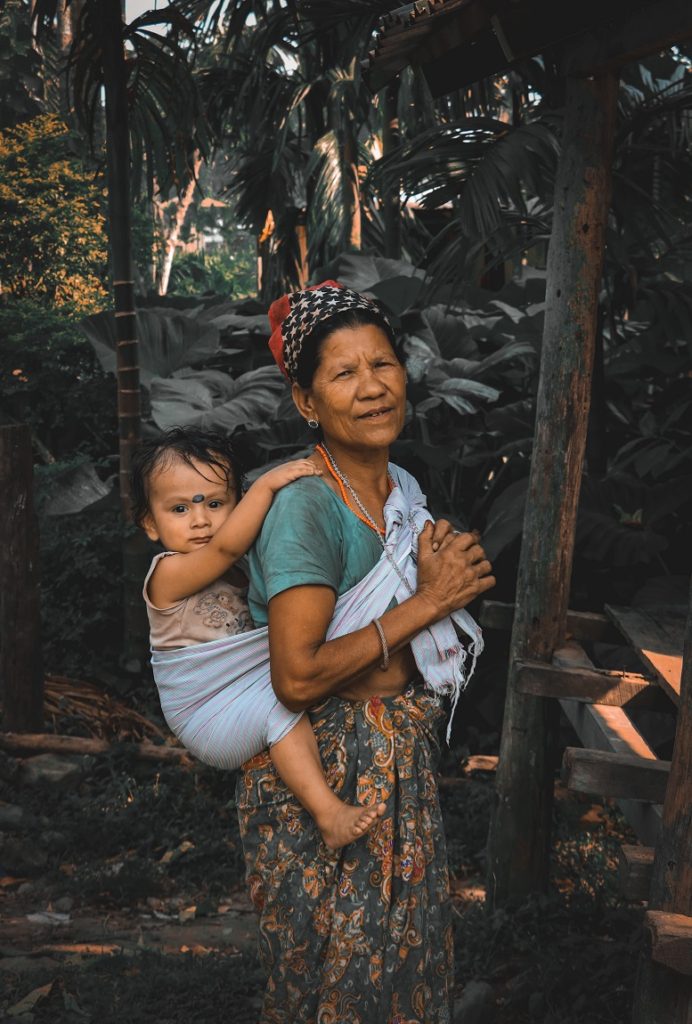
Of course we really don’t know specifically how our ancestors would talk to their children. But what we do know are some of the physical ways that ancient people would treat their children, and we often see these reflected in nature and indigenous people (who happen to be way more connected to nature than we are) as well.
Extended Breastfeeding – It’s documented that in some tribal cultures mothers would breastfeed their children until at least 4-5 years old, sometimes even as long as 7 or 8 years old. I’m assuming that if you’re reading my blog, you already know the incredible benefits of breastmilk, so I won’t go into that here. But sufficient to say that breastmilk does not stop being beneficial at 12 months old!
Carrying Their Babies Most of The Day – mothers in cultures all over the world carry their babies for most of the day on either their back or chest. It’s so interesting to look at some of the different methods and slings that different cultures use. This was largely in part so the mother could continue in her work while keeping her baby with her, but also because babies are generally happier when they are held close by their mother. Plus it allows for easy breastfeeding whenever needed.
Sleeping Close to Their Baby – Our ancestors slept with their babies and children close out of necessity. How could they protect their baby during the night if they are sleeping far away from them? Before I had my daughter, I absolutely thought I wouldn’t co-sleep/bed share. I felt like it was too risky and dangerous. But after I gave birth it felt like the most instinctual thing to me (we did do a bassinet for the first few months until she had more head and neck control).
Our baby is now 13 months and we still love co-sleeping. A few months ago I woke up in the night and noticed that she had a fever. I took her temp and it was 102. I took her shirt off and was more conscious to do skin-to-skin and nurse throughout the night. The next morning her fever was gone. If she had been in a crib in another room I would have never known that was feeling bad!
Questioning the Mainstream
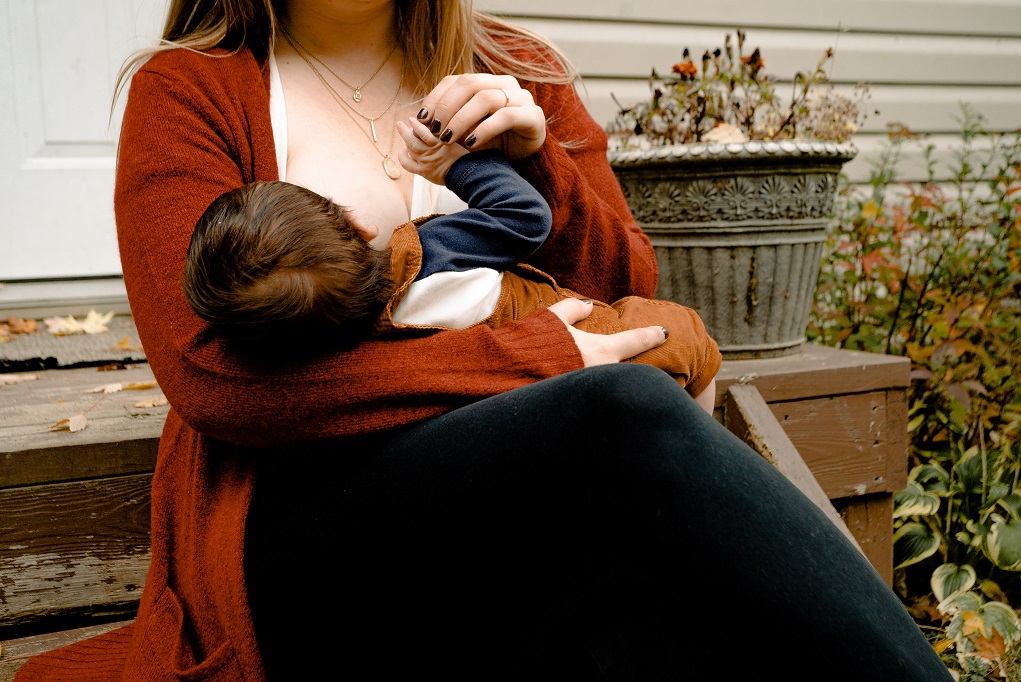
The mainstream has many parenting trends that go against my instinct and intuition. Not all the time, but many times.
Too many times in the past, supposed “experts” have recommended doing a certain thing, and a few years later, they STOP recommending it because new evidence comes out that it’s harmful.
Did you know that in the early to mid 1900s it was commonly recommended for women to spray LYSOL in their vaginas?? And that when a woman would go in to give birth, they would spray lysol in her birth canal to disinfect before the baby came?
Women were dying, getting sick and missing out on passing their vaginal microbiome on to their babies, all because of marketing, corruption, greed, patriarchy (seeing women’s bodies as “dirty”) and power.
Like I said before, there are numerous examples of this happening in other industries.
Like giving X-rays to pregnant women.
Like encouraging smoking for “lung health”.
Like believing that lead paint and asbestos are safe.
Like the Twilight Sleep birth era.
Like the “don’t hold you baby because he needs to learn to self soothe and you’ll spoil him” mindset.
Like the “beat your child so they don’t end up spoiled”.
Like any number of the different pharmaceuticals that have been recalled and linked to causing cancer, after people used them for years.
Mothers. PLEASE. I beg of you, please. Trust your intuition. Question the mainstream. Always.
Being Conscious and Intentional in your Parenting Decisions

As much as I recommend trusting your intuition, I am absolutely a fan of research, true science (that doesn’t have an alternative agenda to push) and NOT going through life on auto-pilot.
Sometimes the ways we respond to our children or parent them can feel instinctual, because it’s the way we were raised, but that doesn’t mean it’s intuitive.
We were all parented a certain way. And we watched our friends being parented in a (probably) similar way. Because of this, we often respond to our kids automatically in the same way.
This is where it can be confusing because our automatic response feels like our instinct.
It’s important to make the distinction though. This is where it’s crucial to change your mindset and see what really feels intuitive- Not what happens automatically.
So I feel like a big part of intuitive parenting is consciously making every parenting decision.
Every choice I make for my baby has been thoroughly thought out and researched on both sides, and I think that is something that every parent should be doing.
Don’t go through life on auto-pilot. Don’t parent on auto-pilot. Don’t do what everyone else is doing just because it’s trendy.
Read, research, listen to council, and listen to your intuition. Make every parenting decision purposefully, and remain confident in your choices; no matter who likes or dislikes them.
So there you have it, though parenting can vary per family and per child, these are some of the core tenants that I believe are foundational to parenting intuitively.
What does intuitive parenting mean to you?
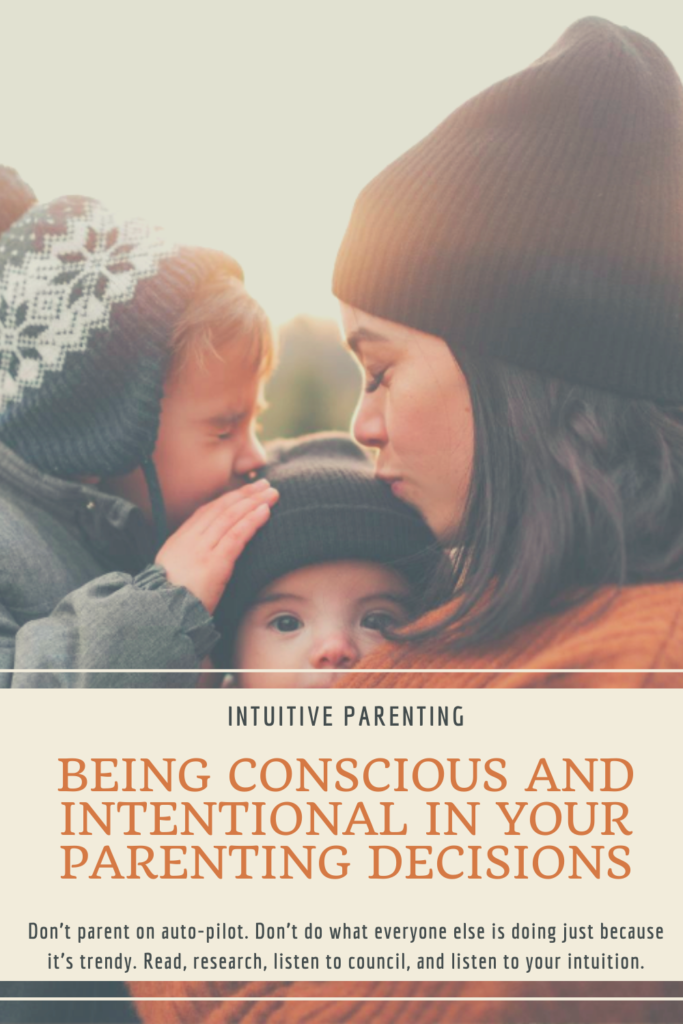

Hey, I'm Tori!
I'm so glad you're here, sweet mother!
My goal is to inspire you to remember your primal roots & live a WILD life in alignment with nature. On my blog I empower you to use herbs and natural remedies to keep your family healthy, teach you how to eat a nourishing, traditional foods diet, and inspire you to raise your babies consciously and respectfully.

